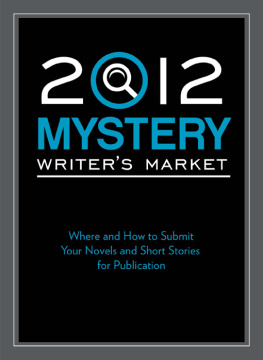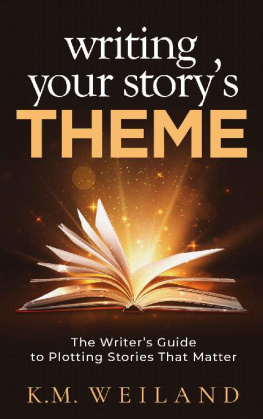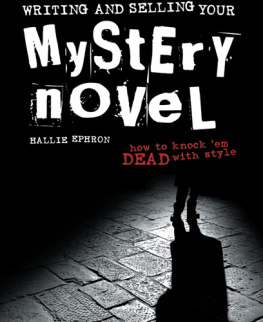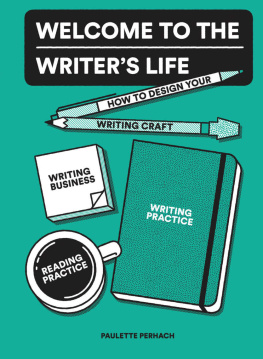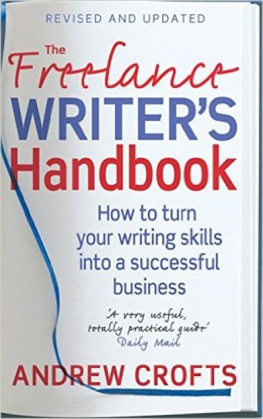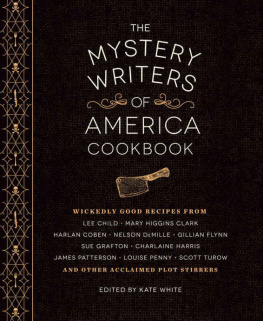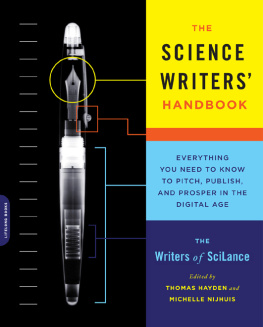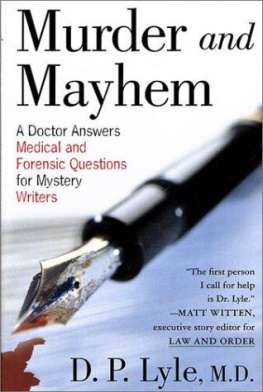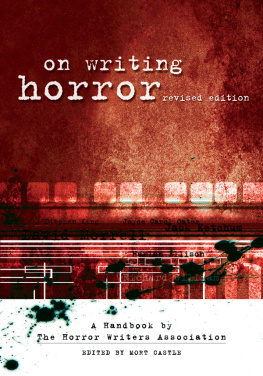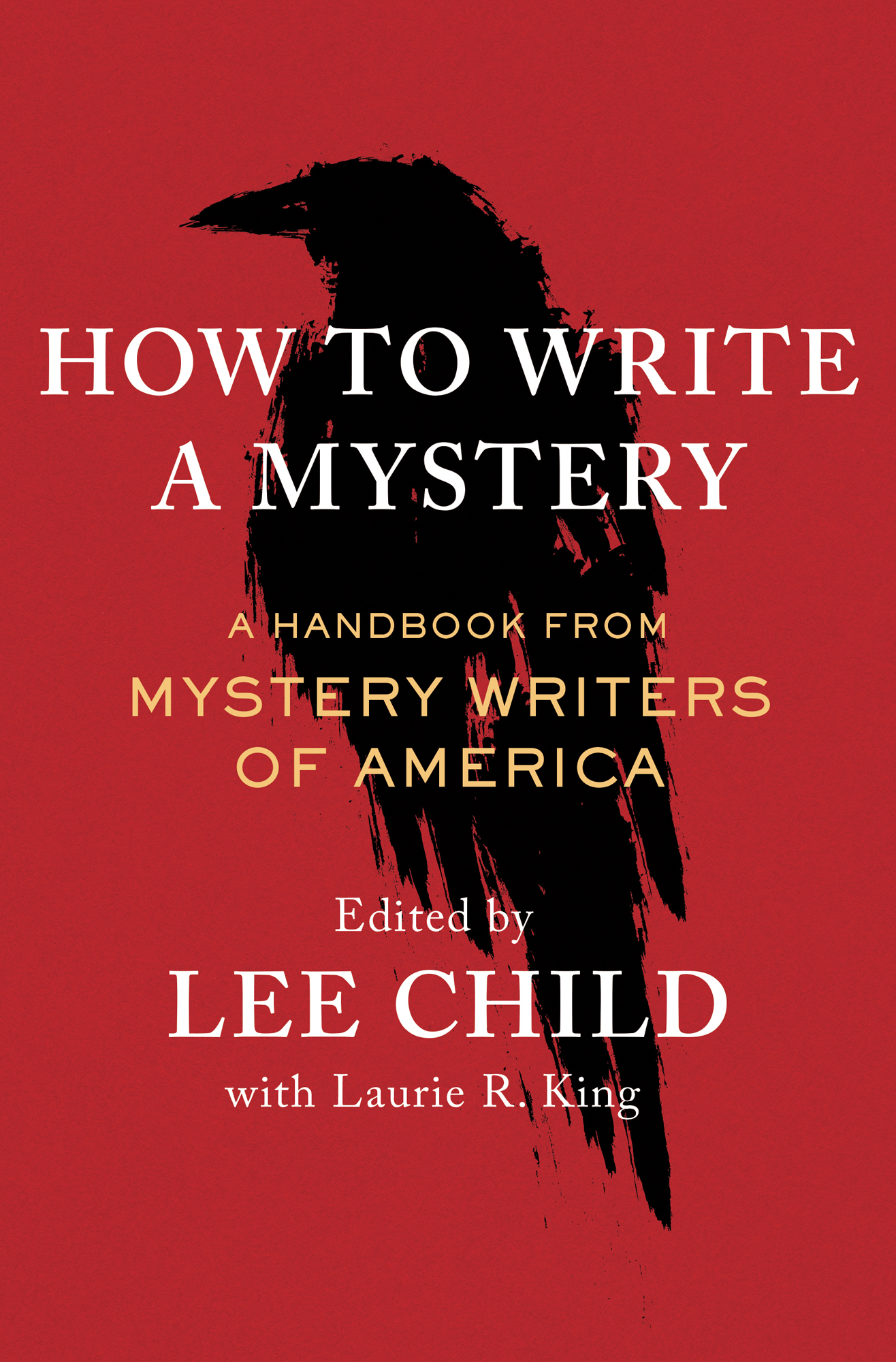
How to Write a Mystery
A Handbook from Mystery Writers of America
Edited by Lee Child with Laurie R. King
Thank you for downloading this Simon & Schuster ebook.
Get a FREE ebook when you join our mailing list. Plus, get updates on new releases, deals, recommended reads, and more from Simon & Schuster. Click below to sign up and see terms and conditions.
CLICK HERE TO SIGN UP
Already a subscriber? Provide your email again so we can register this ebook and send you more of what you like to read. You will continue to receive exclusive offers in your inbox.
Introduction
LEE CHILD
Lets get the jokes out of the way first: Every successful mystery novel must have two specific attributes. Unfortunately, no one knows what they are. Whats the difference between a thriller and a mystery? An extra zero on the advance. And so on, and so forth.
In fact, the attributes a successful mystery must have are many and various, and the successful mystery writers in this book explore them in depth. The question of definition is equally complex. What actually is a mystery? The word means different things to different people. Publishers, editors, reviewers, and genre buffs tend to infer an exact specification, narrow enough to be precise yet broad enough to include several even more precise subcategories. By contrast, I have known several older folks, all very well educated, who call anything south of, say, Haruki Murakami a mystery.
Publishers, editors, and reviewers need to be precise, and genre buffs like to be, but writers dont have to join them. I write without a plan or an outline. The way I picture my process is this: The novel is a movie stuntman, about to get pushed off a sixty-story building. The prop guys have a square fire-department airbag ready on the sidewalk below. One corner is marked Mystery, one Thriller, one Crime Fiction, and one Suspense. The stuntman is going to land on the bag. (I hope.) But probably not dead-on. Probably somewhat off center. But biased toward which corner? I dont know yet. And I really dont mind. Im excited to find out.
I think most writers are like that. And they should be, because most readers are. Or, nowadays, most consumers. Mystery Writers of America was founded around the slogan Crime doesnt pay. Enough. We acknowledge commercial realities, because were all subject to them. The demand for story is still huge. But the supply is growing. In the old days, movies and TV competed with books for leisure time, but they didnt really scratch the same itch. Now, quality long-form narrative television gets dangerously close.
Therefore we need to write better than ever. And we should feel free to use the whole airbag. Mystery writers is a noble and evocative term, but we shouldnt think it limits us. Far from it. From day one, MWA was all over the map. We need to keep it that way, fluid and flexibleand better than ever.
You can make a start on figuring out how by reading this book. Its all here. Im deeply grateful to all the contributorsand I think you will be, too, eventuallyand to those who worked hard behind the scenes. A lot of people gave up a lot of time. Why? Because they want you to be them, twenty years from now. Hopefully even better. Theyre telling you how. Weird, I know. Maybe thats one of the attributes. A successful mystery novel must be written by a good human being. Plus one other thing. Unfortunately, no one knows what it is.
The Rules and Genres
Neil NyrenThe Rulesand When to Break Them
Carved in stone or gentle suggestions: what are the rules in the mystery genre, why do they matter, and when dont they matter?
Meg GardinerKeeping It Thrilling
Nine things your thriller needs to be lean, mean, and exhilarating.
Naomi HiraharaInsider, Outsider: The Amateur Sleuth
The point, and point of view, of your accidental detective.
Rachel Howzell HallFinding Lou: The Police Procedural
Are you a cop, or do you just play one on the page?
Alex SeguraThe Mindset of Darkness: Writing Noir
Its about character: the flawed protagonist and letting your characters fail.
Charlaine HarrisCrossing the Genres
Mixing your mystery with a vampire, a talking cow, or a love interest?
Jacqueline WinspearThe Historical Mystery
Time, place, and the past.
Tess GerritsenThe Medical Thriller
Playing on the readers real-life fears and hunger for insider knowledge.
Gayle LyndsResearching the Spy Thriller
Or: Why cant I just make it all up?
The Rulesand When to Break Them
Carved in stone or gentle suggestions: what are the rules in the mystery genre, why do they matter, and when dont they matter?
NEIL NYREN
Everybody loves lists, and the crime fiction world is no exception: the ten books if you love historical thrillers; the twelve books for fans of Agatha Christie; the five psychological suspense novels you need to read right now; the best books of the year, of the decade, of the century. And, of course, the lists of rules for how to write them all.
W. Somerset Maugham famously said, There are three rules for the writing of a novel. Unfortunately, no one knows what they are. That hasnt stopped people from making them up anyway. In 1928, American detective author S. S. Van Dine published Twenty Rules for Writing Detective Stories. In 1929, British author (and theologian) Ronald Knox created his Ten Commandments for Detective Fiction, later known as the Decalogue. In 1973, suspense writer Brian Garfield produced Ten Rules for Suspense Fiction. In 2001, Elmore Leonard provided his ten rules of writing to the pages of the New York Times.
The lists are useful for writers of crime and suspense fiction, and well worth absorbing, although some of the earlier ones are, lets say, problematic (Knoxs rule number 5 reads: No Chinaman must figure in the story. What?). Theyre useful because if youre just starting out, you need to have some sense of what youre doingwhat the conventions are, what the subgenres are, what generations of crime writers have found that works or doesnt work. The rules and conventions give you a solid footing. After that, though, anything goes. Anything? Yes. Because theyre not holy writ (the Commandments notwithstanding). The beauty of being a writer, the pure joy of the creative act, comes when you take those conventions and smash them, reinvent them, twist them into brilliant pretzels.
Well get to that, but first you need to figure out just what the heck it is youre writing, so lets look at some of the subgenres of crime and suspense fiction and see how they sort out.
The most basic divisionand the question that comes up all the timeis: Just what is the difference between a mystery and a thriller? The latter term is thrown around all the time, sometimes indiscriminately, because publishers feel that thrillers tend to have the bigger market, and so theyre happy to slap it on all kinds of books, but at the very core, the difference is this:
Mysteries are about a puzzle. A crime is committed, usually murder, and the protagonist has to weave their way through clues and suspects to finally arrive at a solution. Its a more cerebral endeavor, and the key question is Who did it?
Thrillers are about adrenaline. Something bad happens, with the certain promise that moreand probably even worsebad things will happen unless the protagonist can prevent them. The stakes can be intimate (one persons life) or huge (the fate of the world), the protagonist can be an ordinary person or a superhero. Whatever the case, its the suspense that drives the book, the chase, the scramble, and the key question is What happens next?


